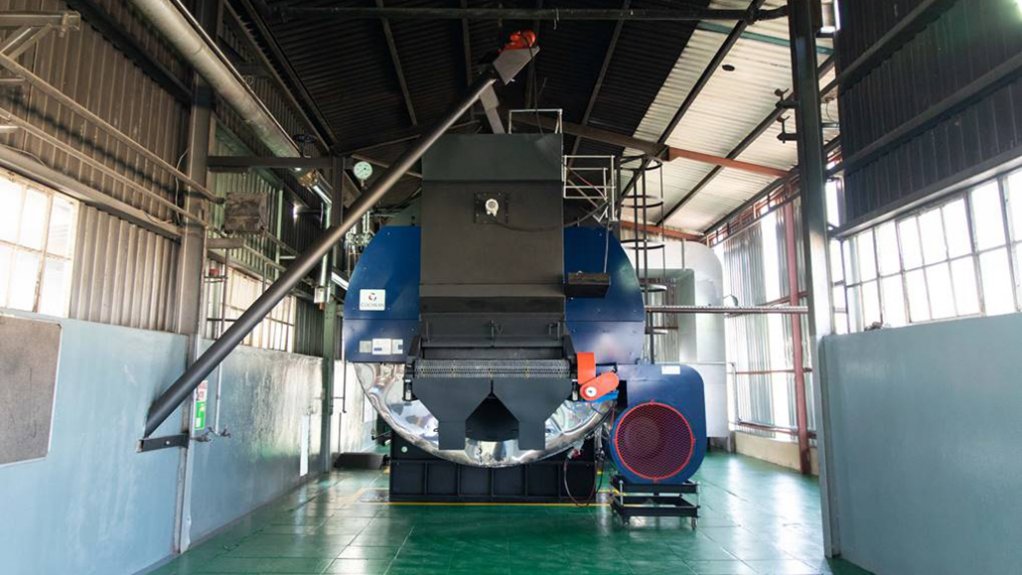Boiler and burner solutions provider Steam Generation is set to introduce Carbon Tax consulting services for its customers to add to its boiler financing services.
This comes after the Carbon Tax Act was introduced in South Africa in June last year, which affects energy-intensive industrial users, particularly miners and manufacturing companies, as companies in these industries tend to contribute significantly to carbon emissions.
“As boilers are one of the most significant energy inputs for our customers, making an appropriate decision regarding its acquisition impacts on many areas across most businesses. This could include finance, engineering, procurement and compliance.
“Therefore, offering these consulting services will help customers to be adequately prepared for tax submissions,” says Steam Generation commercial director Nkosinathi Hlophe.
Steam Generation has prepared for the effects of carbon tax by increasing its range of boilers that can run on cleaner fossil fuels at an affordable cost, he adds.
The company’s combustion systems are equipped to run as efficiently as possible in a cost-effective manner. For example, Steam Generation has introduced virtual sensing technology, which enables customers to monitor emissions without having made a significant cash investment.
“We are also upskilling our technicians and managers to provide technical solutions that ensure compliance with the legislation at a plant operating level,” Hlophe enthuses.
He also highlights an increase in demand from customers that make use of coal-fired boilers that require automation of their boilers, as this would assist them in monitoring and realising boiler efficiency at a reasonable cost.
This feature of automation would allow companies to perform a variety of engineering and financial assessments linked to carbon tax compliance. This could include monitoring and assessing aspects such as the boiler combustion process, the amount of carbon emissions released, as well as maintenance schedules and the effect of this on the equipment and overall plant efficiency.
While use of coal-fired boilers is prominent, Steam Generation has noted an increase in demand for the dual-fired boilers that it supplies, which enables clients to transition from using coal-fired to less carbon-intensive fuel boilers. This includes diesel- or gas-fired burners to fuel production plants, which is driven by cost, logistical and environmental pressures from shareholders and stakeholders as the global economy continues to transition to cleaner energy.
“Customers are under increasing pressure to use cleaner fossil fuels to run their plants. Our dual-fired boilers enable customers to upgrade from a coal-fired boiler to a cleaner fuel such as diesel while simultaneously waiting for the country’s gas infrastructure to be put in place, without significantly impacting an operations.”
“The industry will have to prepare its in-house skills base to cater to the growing demands of customers who require not only a boiler and burner supplier and contractor but also an execution partner that can assist in conceptualising and implementing the technical solutions required to reduce carbon emissions and improve tax compliance,” Hlophe explains.
Boiler Financing
With the struggling state of the local economy, and particularly owing to the significant capital expenditure required to buy boilers, Hlophe highlights that there are two trends in boiler financing with which Steam Generation hopes to help customers.
Firstly, large multinational companies have to find innovative ways of reducing cash outflow and operational debt; secondly, small companies have to preserve cash while stretching operational budgets to compete in an uncertain business environment.
“Boiler financing enables these businesses to meet these objectives for any sized boiler driven by production demand, and even more so for smaller companies that would rather preserve cash and maintain positive working capital to operate the business profitably.”
Hlophe highlights that the benefits businesses can gain from boiler financing includes an improved cash flow, cash forecasting and 100% financing. These benefits are made possible because of the minimal to no down payments or upfront costs, lower monthly payments and predetermined payments. He also notes that their turnkey boiler house installation projects can now be financed in one transaction.
Boiler financing could also result in potential tax advantages, healthy balance sheet metrics and operational peace of mind.
Further, certain financing may qualify for tax-deductible payments and other tax-relief measures. Certain boiler financing plans do not require the addition of a liability or the need to reduce working capital, and costs associated with boiler upkeep are included in the financing agreement through a maintenance service agreement.
This will enable companies to focus on their core business and keep their plants running.
“These services are all part of our vision to become the complete boiler specialist energy services provider in sub-Saharan Africa,” he concludes.
Edited by: Zandile Mavuso
Creamer Media Senior Deputy Editor: Features
EMAIL THIS ARTICLE SAVE THIS ARTICLE
ARTICLE ENQUIRY
To subscribe email subscriptions@creamermedia.co.za or click here
To advertise email advertising@creamermedia.co.za or click here













